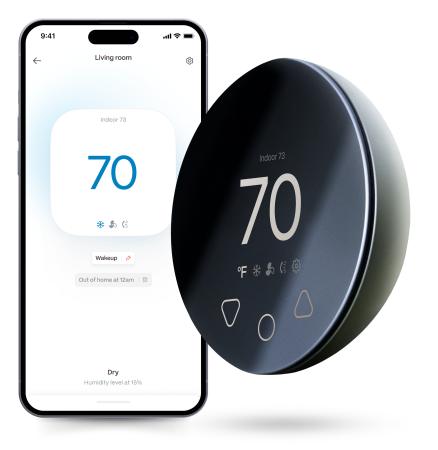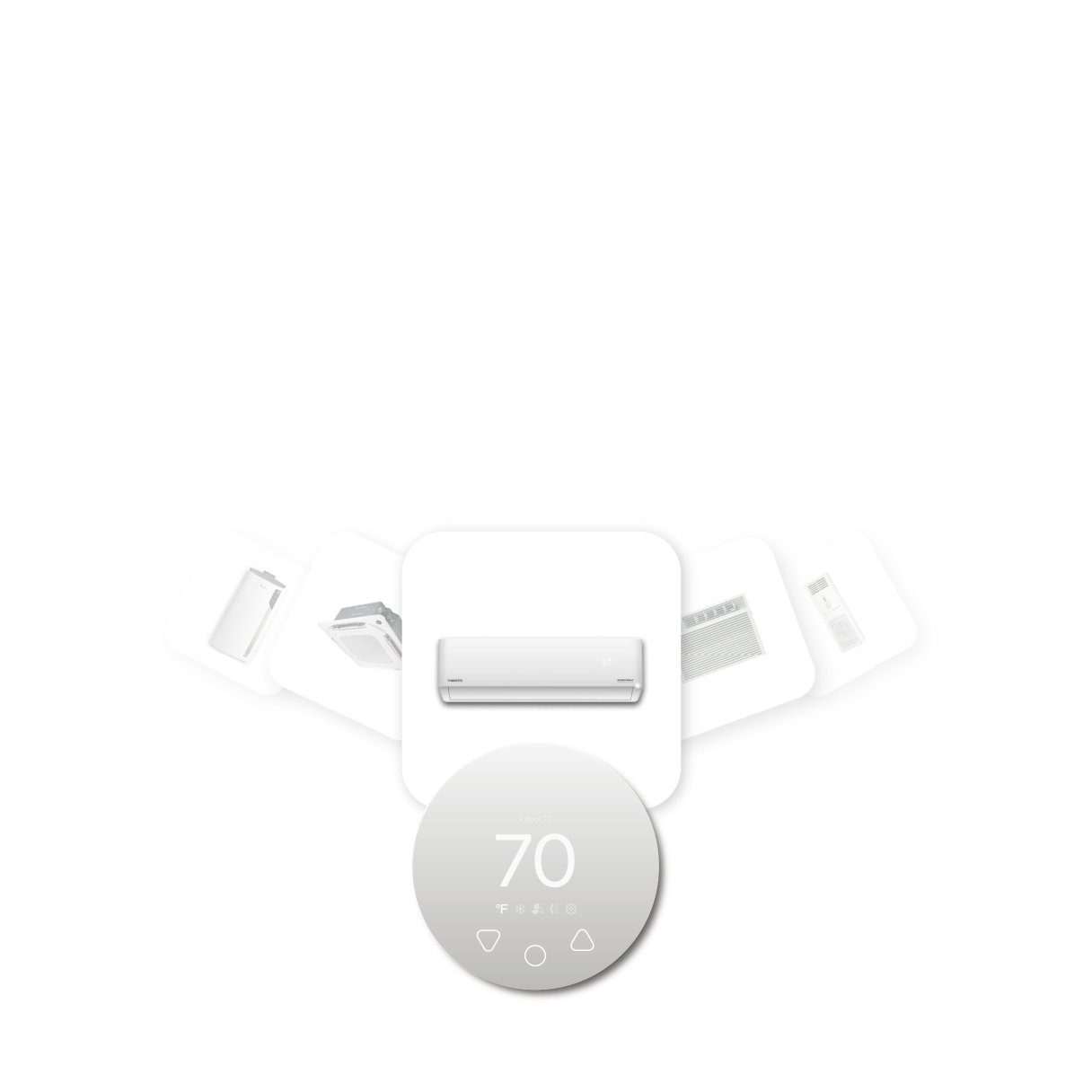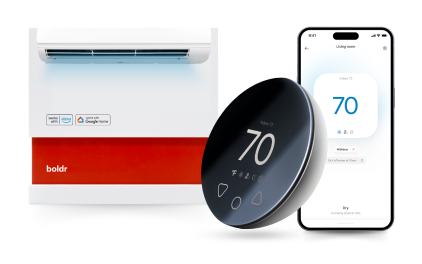
Choosing the right air conditioning system for your home is a crucial decision that affects your comfort, energy efficiency, and budget.
Two popular options are ducted air conditioners (commonly known as central air conditioning systems) and ductless mini-split systems.
Understanding the differences between these systems can help you make an informed choice. In this article, we will go through the differences between ducted central A/C systems and ductless mini-split systems.
What are Ductless and Ducted A/C’s? What is The Difference?
Ducted air conditioners, commonly known as central air conditioning systems, use a network of ducts to distribute cool air throughout a home, with a central indoor unit connected to an outdoor compressor.
These systems typically involve significant installation efforts, especially in homes without existing ductwork.
Ductless air conditioners, or mini-split systems, do not require ducts; instead, they use individual indoor units connected to an outdoor compressor.

Efficiency
Mini-split systems are known for their high energy efficiency. One key reason for this is that they do not require ductwork.
Poorly sealed ductwork in central air conditioning systems can lead to energy losses of up to 30%, which translates to higher energy bills and wasted energy that escapes into your walls, attic, or crawlspace.
By eliminating ducts, mini-split systems ensure that all the energy consumed is used for cooling, making them a more efficient option.
Built-in Zoning
Ductless mini-split systems have built-in zoning capability. A single outdoor compressor unit can connect to one or multiple indoor units, each with its own thermostat.
This allows you to control the temperature of individual rooms independently. Zone control is particularly beneficial if different areas of your home have varying temperature needs or if different household members prefer different temperatures.
Additionally, you can save on energy costs by only cooling the rooms that are in use. While some central air systems offer zoning options, they are not as flexible as mini-split systems. Central air conditioning typically cools the entire house at once, which can lead to energy waste if certain rooms are not in use.
Utility Bills
The cost of running central air conditioning and ductless mini-split air conditioning systems can vary based on the climate, the BTU output of the unit, and usage patterns.
On average, it can cost between $96 (€87.94) and $168 (€153.89) per month, which translates to approximately $1000 (€916.00) to $1200 (€1,099.20) per year. This is about 30% higher than the yearly cost of operating a ductless A/C system.
 Duct Maintenance
Duct Maintenance
Central air conditioning systems require regular maintenance of the ductwork. Moisture inside the ducts can lead to mold and mildew growth, which can result in unpleasant odors and potential health risks.
Annual maintenance is recommended, adding an additional expense to your yearly budget. Mini-split’s do not use ducts so homeowners do not need to worry about duct maintenance.
Retrofit Costs
When it comes to retrofit costs, installing a ductless mini-split system is more affordable than installing a central air conditioning system. The average cost is $3,300 (€3,022.80) for a ductless single zone mini-split system. A 3-zone ductless A/C system costs an average of $7,800 (€7,144.80).
Ductless A/C systems are also quicker and less invasive to install than ducted A/C systems, especially in homes without existing ductwork.
Installing a new HVAC system with ductwork is significantly more expensive, with an average cost of $11,500 (€10,534.00). The higher cost is due to the need for extensive ductwork installation, which is both labor-intensive and material-intensive.
Overview
If you are still confused about what the differences are between ductless mini-split A/C systems and ducted central A/C systems, don’t worry we’ve got you covered!
Here’s an overview in differences of ductless mini-split A/C systems and ducted central A/C systems:
|
Ductless Mini-Split Systems |
Ducted Central A/C Systems |
|
|
Most Efficient |
✔ |
|
|
Built-in Zoning |
✔ |
|
|
Central Cooling |
✔ |
|
|
Cheaper Utility Costs |
✔ |
|
|
Cheaper Retrofit Costs |
✔ |
|
|
Ducted Maintenance Costs |
✔ |

How to Make The Most Out Of Your Mini-Split With Klima
Klima is our smart thermostat designed to transform your mini-split into intelligent devices that you can control via your mobile phone.
Klima - Smart Home Thermostat for Mini-splits, Air Conditioners and Heatpumps
Compatible with all brands of ACs and Mini-Splits Automate Climate Management Control remotely Reduce Energy Consumption Monitor bills in realtime
Try Now
Why Choose Klima?
1. Boost Convenience
Klima allows you to manage your A/C directly from your phone.
Whether you're lounging on the couch or miles away from home, you have complete control at your fingertips.
2. Automate Climate Management
Achieve the perfect temperature effortlessly.
With Klima you can automate climate settings, adjusting your home's temperature based on your routines and preferences.
3. Reduce Energy Consumption
With advanced energy-saving features, Klima helps monitor and optimize energy usage.
Klima offers energy saving features, helping you save on your energy bills.
Trust me, we get it. Bills are daunting, and even more so in the summer when you need your mini-split running. Let Klima, help take the stress off of your finances.

Conclusion
When deciding between central air conditioning and ductless mini-split systems, consider your specific needs and circumstances.
Mini-split systems offer higher energy efficiency, built-in zoning, and lower utility and retrofit costs, making them a great choice for many homeowners.
However, if you prefer a whole-home cooling solution and are willing to invest in regular duct maintenance, central air conditioning might be the right fit for you. Evaluate your home's layout, your budget, and your cooling preferences to make the best decision for your comfort and energy efficiency.
With its advanced features and extensive compatibility, Klima not only simplifies climate management but also promotes sustainable living.


















